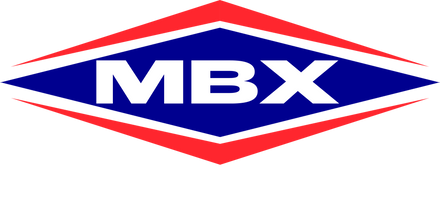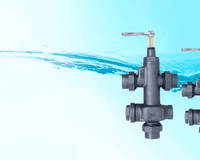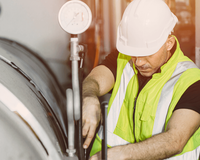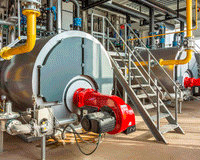Learn all about the NR-13 inspection
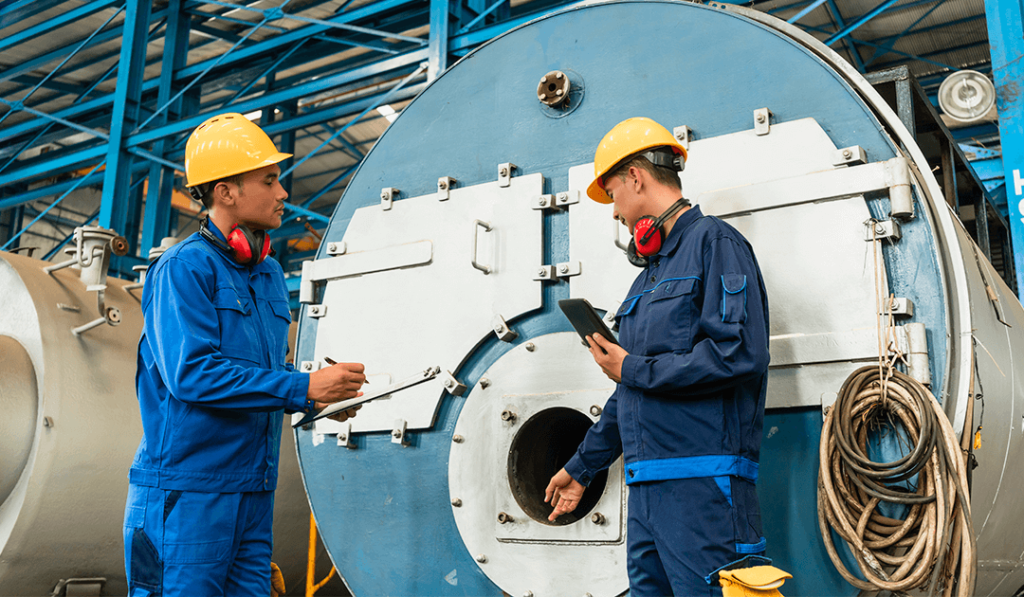
Boilers are equipment used in various industrial processes. Precisely for this reason, problems with the equipment can pose serious risks to operational safety, making it essential to follow all standards regarding inspection of NR-13 (Regulatory Standard related to Boilers and Pressure Vessels).
NR-13 is a standard that aims to establish technical and safety requirements that allow for correct inspection of the structural integrity of boilers. Failure to comply with the standard can lead to serious accidents.
Given this, it is worth understanding the importance of the NR-13 inspection, as well as the main points of this standard. Follow the reading and understand more about the subject.
NR-13 Inspection: What is it?
As we have already highlighted in our introduction, NR-13 is a standard related to boilers and pressure vessels that determines the minimum requirements to guarantee the structural integrity of this equipment, essentially regarding operation, inspection, installation and maintenance.
Therefore, according to the aforementioned standard, inspection is a technical procedure that aims to verify the operational safety of boilers and pressure vessels.
The main objective of the NR-13 inspection is to clarify the guidelines that ensure safety in the operation of both pressure vessels and boilers and their piping. In addition, it also preserves the company's structure while also avoiding damage to the environment.
Thus, when defining basic rules and requirements, the standard establishes that companies must be responsible for adopting all measures contained in the document, aiming, through inspections, to guarantee the integrity of the systems.
What does the NR-13 inspection establish?
As we have already highlighted, NR-13 defines standards for installation, safety in operation and maintenance of boilers. Thus, among the items checked during the boiler inspection procedure are:
- Safety valve with opening pressure equal to or lower than the PMTA;
- Instrument that indicates the pressure of accumulated steam;
- Injector device, independent of the main system;
- Rapid water drainage system, essentially in recovery boilers;
- Indication system that allows control of the water level or any other system that makes it possible to prevent equipment overheating due to poor power supply;
In addition, the NR-13 inspection also requires identifying the boiler category, its identification code (in a visible place) and the identification plate with all manufacturing data (year, order number and manufacturer). It also recognizes the steam production capacity, project code/year of edition, heating surface area, PMTA and hydrostatic test pressure.
All documentation on equipment maintenance and care is also checked. This is precisely why it is so important to invest in quality preventative treatment, whether for new boilers (before installation) or those in operation.
NR-13 inspection checklist: What should be checked?
For the NR-13 inspection to be carried out correctly and to ensure complete operational safety for the boilers, following a checklist is essential. It should include safety issues for inspection, in addition to internal inspections of the equipment.
In security, the following checklist must be followed:
- Clearing the area, ensuring the absence of toxic or explosive gases;
- Every electrical component of the system must be locked;
- Verification of access safety and explosion-proof lighting;
- Use appropriate PPE;
- Check equipment grounding
Preparation for NR-13 inspection must contain:
- Survey of which tools will be necessary;
- Calibration of instruments to be used in the inspection;
- Check that the ventilation is adequate.
Regarding the internal inspection of the equipment, you must:
- Check internal integrity for corrosion, visual welding defects or discontinuities;
- Analyze the situation of the internal components regarding fixation, deformation, etc.;
- Check the integrity of the filter;
- Check the possibility of preferred routes for solid elements;
- Check the physical conditions of the internal lining;
- Promote inspection with a borescope when visual assessment is not possible;
- Inspect level gauges, where applicable;
- Observe the internal welds;
Finally, it is important to remember that after carrying out this inspection, the responsible engineer will be able to issue the NR-13 report, which must include:
- Results of all non-destructive tests performed;
- Classification of inspected equipment according to NR-13;
- Equipment thickness values;
- Safety valve calibration report;
- Equipment nameplate data;
- Values of maximum permissible working pressure with calculation memory.
Therefore, the NR-13 inspection is highly relevant in the industry as it establishes the minimum requirements for managing the structural integrity of boilers. In other words, companies that follow the specifications of the standard protect the physical integrity of workers and the investment required.
To learn more about boilers and their safety devices, check out the MBX Machines blog .
